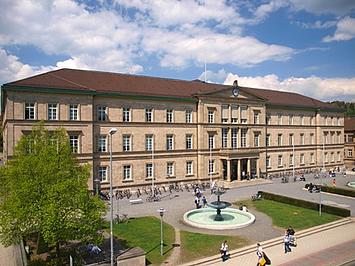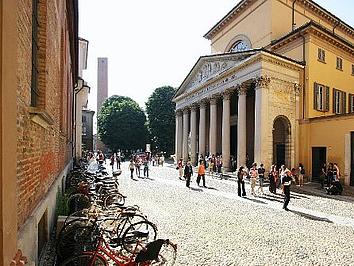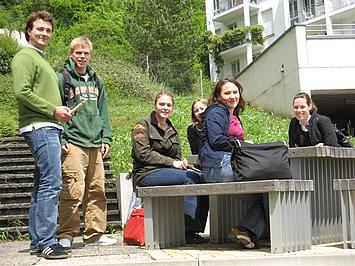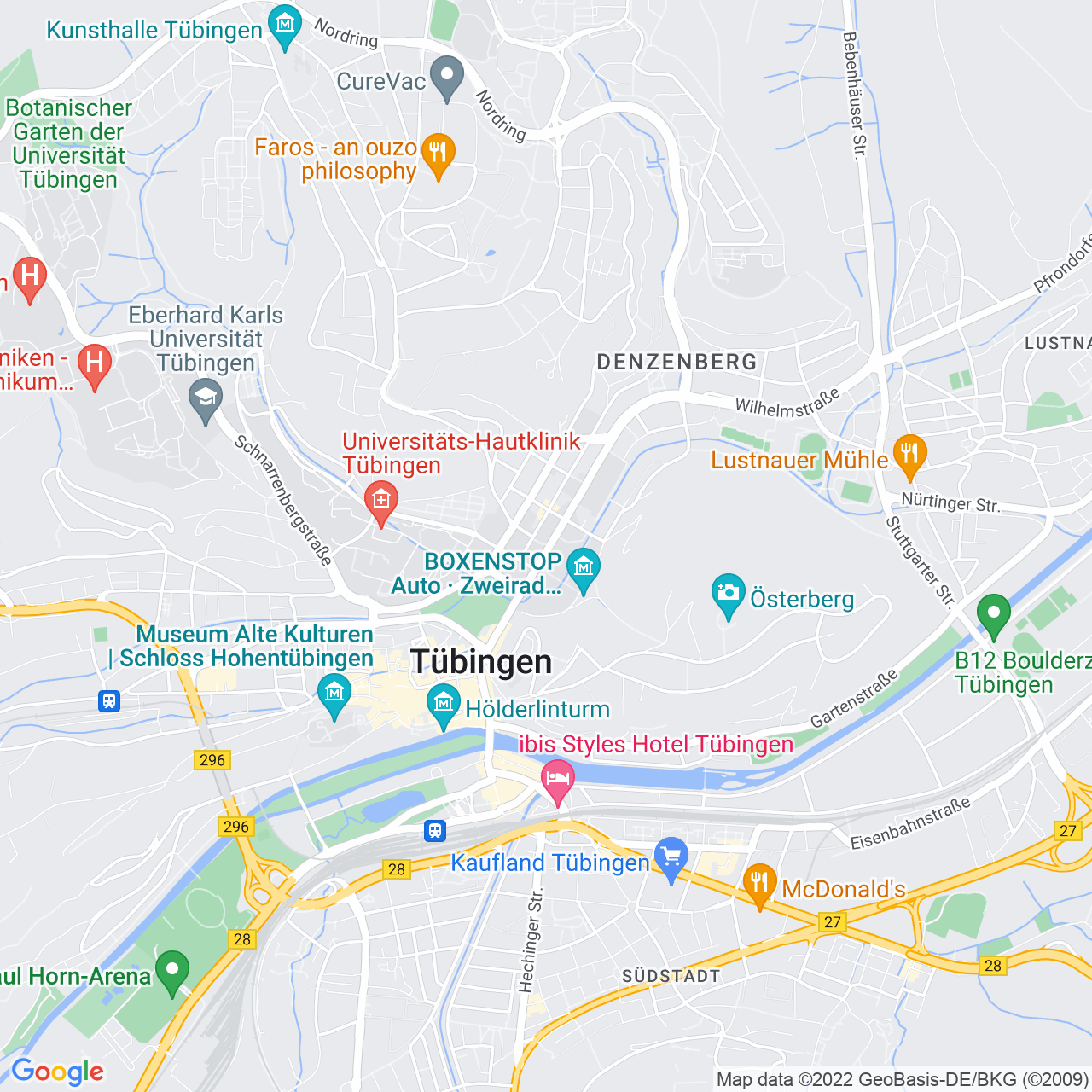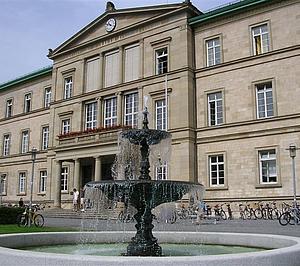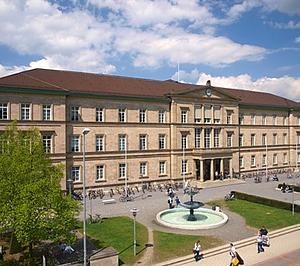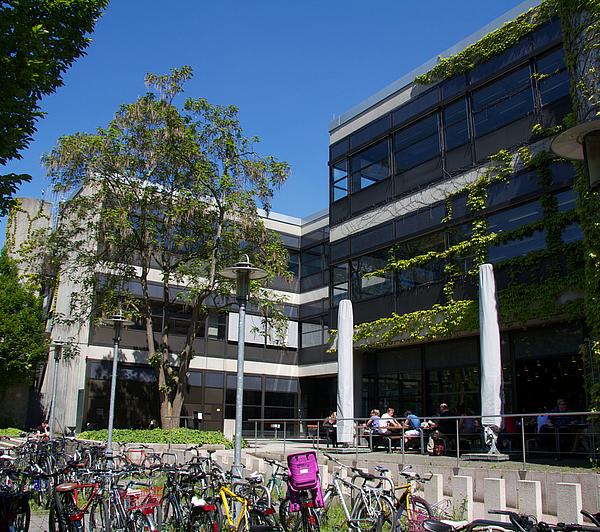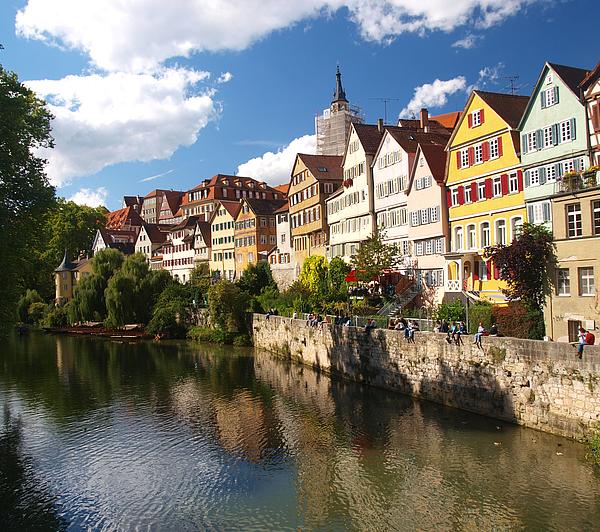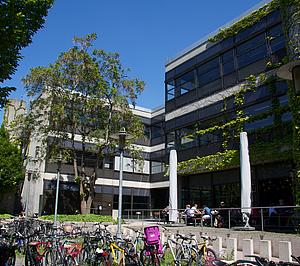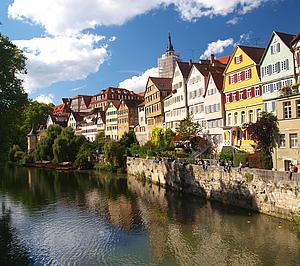Graduates have a wide range of career options
The MSc European Economics is a unique double degree programme offering a comprehensive and flexible graduate level economics education combined with an integrated year of study in either Pavia (Italy), Nottingham (England) or Marseille (France).
Students spend one year at the University of Tübingen and one year at the partner university of their choice, either the Università degli studi di Pavia, the University of Nottingham or Aix-Marseille Université. Living and studying in Italy, England or France, students gain valuable skills and capacities necessary to compete in the European economic world. Due to the international focus of the programme, graduates are able to get into different working procedures in different countries efficiently and adopt beneficial practices employed in other cultures.
In addition to the MSc in European Economics, students are granted a Master’s degree from their chosen partner university. Thus, graduates have a wide range of career options in international companies or institutions in the public sector.
Curriculum
The Master of Science programme in European Economics is completed at the University of Tübingen and either at the Università degli Studi di Pavia, the University of Nottingham or Aix-Marseille Université.
The part of the programme that is completed at the University of Tübingen is divided into three main areas of study: core studies, specialisation studies, and elective studies. Students focus on up to two specialisations from the areas of Economics, International Economics, Finance, and Econometrics. To complete the programme, students have to obtain a total of 120 ECTS credits, 60 ECTS credits at each of the two universities.
For the Pavia option, there are two modes of study, depending on whether or not the Master's thesis is completed at the University of Tübingen. Students who choose to spend their first year at the University of Tübingen will write the Master's thesis while studying at the University of Pavia in their second year. Students studying at the University of Pavia in their first year will write the Master's thesis at the University of Tübingen. As a consequence, the course load for each institution depends on whether the student is in the first or second year of the programme.
With the Nottingham option, students spend their first year in Nottingham studying "Environmental Leadership and Management" before they continue their studies in Tübingen during their second year, which includes writing a Master's thesis co-supervised by one professor from each university.
When choosing the Marseille option, students begin their studies in Tübingen and take modules based on the track they want to follow in the second year in Marseille: Economics or Finance. They will also write their Master's thesis at Aix-Marseille Université.
Professional Career
Graduates of the M.Sc. in European Economics are well-equipped to either pursue an academic career or an ambitious professional career. The double degree enjoys an outstanding international reputation and gives you a competitive edge on the job market. You will acquire up-to-date scientific knowledge that is in high demand for a broad range of professional careers. Graduates may aim for a doctoral degree (Ph.D.) or careers in business and finance as well as administrative positions in the public sector and international institutions. Moreover, career paths in economics and finance also include policy advice, publishing, consulting and research.
Ph.D. Track
Graduates will also find themselves well-positioned to pursue a Ph.D. subsequent to this M.Sc. program. Towards this end, students may study this M.Sc. program on a Ph.D. track, putting themselves on a fast track to a doctoral degree in Economics. See also the School's Doctoral programs in Economics (DPE).
Admission to the Master of Science in European Economics requires a Bachelor’s Degree in Business Administration or Economics with a grade better than 2.5, preferably a degree that amounts to 180 ECTS credits. Applicants are expected to be familiar with the basic principles, theories and concepts in the field of economics. In addition, sound intermediate level knowledge in three of the following areas: is expected:
- Microeconomics,
- Trade Theory and Policy,
- Finance and
- Quantitative Methods (Mathematics / Statistics / Econometrics)
The entire program is taught in English. Applicants should have an excellent command of the English language. Knowledge of German or Italian is not formally required to complete the program. However, students are strongly encouraged to take Italian language courses before going abroad.
The program is free of tuition fees for all EU residents. The state of Baden-Württemberg has introduced fees for international non-EU students and second-degree students. For background information and for fee exemption options, please refer to this link.
Dates
Admission is subject to a competitive selection procedure that includes individual interviews with faculty members. Shortlisted candidates from overseas will be interviewed in a video conference.
Application deadline: May 15
Our programs start at the beginning of October.
Please refer to our homepage to find out when we will be holding interviews this year.
The School of Business and Economics in Tübingen
The School of Business and Economics at the University of Tübingen is committed to high-level academic education in both business administration and economics. It features a faculty of 26 professors and about 45 junior researchers, all of whom are actively engaged in academic research. Our Bachelor and Master programs mirror the widely respected academic expertise of the faculty. Students gain from courses taught at the frontier of academic research as well as from dedicated tutoring and learning in small groups, with close contact to academic staff.
The School of Business and Economics offers three Bachelor of Science programs and ten different Master of Science programs that allow students to specialize in areas with promising career prospects.
The Master programs at the School of Business and Economics
- Accounting and Finance (M.Sc.) >
- Economics (M.Sc.) >
- Economics and Finance (M.Sc.) >
- European Economics (M.Sc.) >
- European Management (M.Sc.) >
- General Management (M.Sc.) >
- International Business (M.Sc.) >
- Management and Economics (M.Sc.) >
- Data Science in Business and Economics (M.Sc.) >

